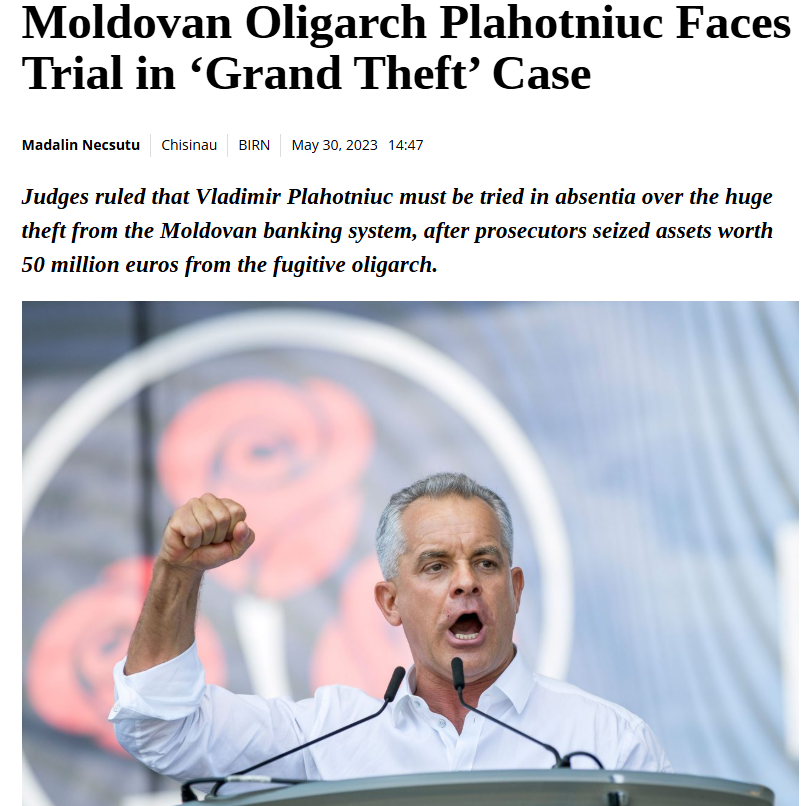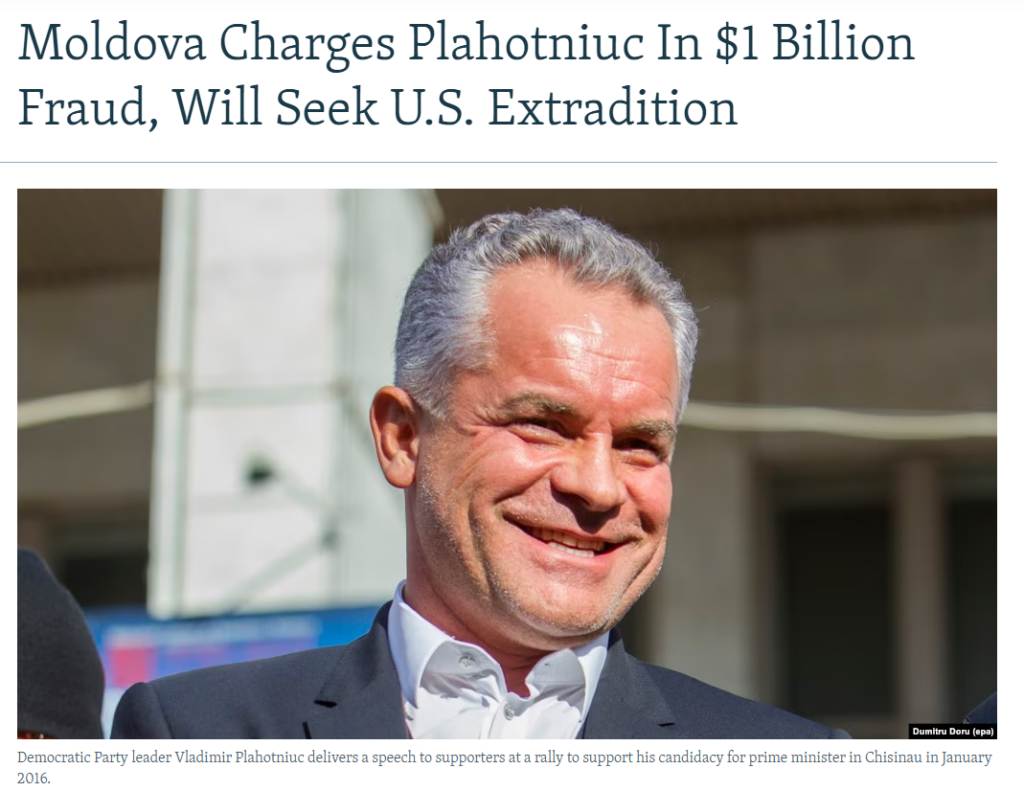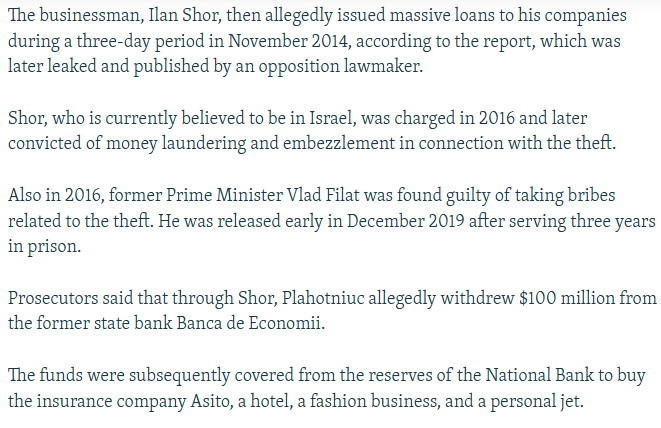Introduction
Vladimir Plahotniuc is a name that evokes a mix of fear, intrigue, and controversy in Moldova. As a businessman, media mogul, and political heavyweight, Plahotniuc’s influence reached far beyond the borders of his homeland, sparking international investigations and global scrutiny. For years, he maneuvered through Moldova’s political landscape with unparalleled skill, building an empire that extended across banking, real estate, media, and even the highest levels of government.
However, beneath the polished surface of his success lies a web of alleged corruption, money laundering, and criminal activities that have earned him the title of Moldova’s most notorious oligarch. His name has been linked to the largest financial scandal in the country’s history — the disappearance of $1 billion from Moldova’s banks — and to an elaborate network of hidden assets and shell companies used to launder money across Europe.
In this investigation, we delve deep into Plahotniuc’s business ventures, secret financial dealings, and alleged criminal operations. We analyze the risks he poses to financial institutions, evaluate the red flags that have triggered international sanctions, and assess the consequences of his actions on Moldova’s political and economic stability. This is the story of a man whose grip on power extended into every corner of society — and the global efforts to bring him to justice.

Business Relations and Personal Profile
Vladimir Plahotniuc’s rise to power began in the turbulent 1990s, as Moldova transitioned from Soviet rule to a free-market economy. During this chaotic period, Plahotniuc built a sprawling business empire, capitalizing on the lack of regulation and the fragile political environment.
His early ventures centered around Victoriabank, one of Moldova’s largest financial institutions. Reports suggest that Plahotniuc quietly acquired substantial shares in the bank through proxies, consolidating his control over a key part of the country’s financial system. Victoriabank would later become central to allegations of large-scale money laundering.
Plahotniuc’s reach extended far beyond banking. He became the owner of multiple companies across various sectors:
- Real Estate: Through shell companies, he amassed a portfolio of luxury properties across Europe.
- Hospitality: He owned the prestigious Nobil Luxury Boutique Hotel in Chișinău, a symbol of his wealth and status.
- Media Empire: Perhaps his most potent weapon was his control over Prime TV, Publika TV, Canal 2, and Canal 3 four of the five national television stations in Moldova. By controlling over 70% of the audiovisual market, Plahotniuc ensured that public perception was carefully curated to serve his interests.
Undisclosed Business Relationships and Hidden Assets
Behind the carefully crafted image of a legitimate businessman lay a labyrinth of undisclosed partnerships, offshore companies, and secret financial flows. Investigations have revealed a sophisticated system of shell corporations, hidden accounts, and proxy ownership used to move vast sums of money across borders undetected.
One of the most infamous cases involved Metalferos, a state-controlled company dealing with metal exports. Between 2010 and 2019, Plahotniuc allegedly siphoned tens of millions of dollars from Metalferos through companies he secretly controlled. These funds were then funneled into offshore accounts and reinvested in luxury properties across Europe.
Another revelation came in the form of hidden real estate assets. Investigative journalists from RISE Moldova uncovered at least four properties valued at over €30 million in countries such as Switzerland, France, and Romania. These properties were purchased through complex legal structures, masking the true beneficiary — Plahotniuc himself.
What makes these hidden assets so significant is the complete lack of transparency. Many of these acquisitions were made while Plahotniuc held public office, raising serious questions about conflicts of interest, abuse of power, and possible violations of anti-corruption laws.

Allegations, Red Flags, and Criminal Proceedings
The list of allegations against Plahotniuc reads like the script of a crime thriller. Among the most severe accusations is his involvement in the “billion-dollar theft” — the largest financial scandal in Moldova’s history. Between 2012 and 2014, $1 billion vanished from Moldova’s banking system, equivalent to 12% of the country’s GDP.
While others, such as businessman Ilan Shor, were convicted for their roles in the heist, Plahotniuc’s alleged involvement has never been fully proven in court. Critics argue that his influence over Moldova’s judiciary allowed him to evade justice, even as evidence mounted.
Additional allegations include:
- Money Laundering: Using a network of offshore companies to launder illicit funds.
- Bribery and Corruption: Manipulating judges, politicians, and law enforcement officials to maintain control.
- Drug Trafficking: Although no formal charges have been filed, some reports have linked him to international narcotics smuggling.

Sanctions, Legal Actions, and International Scrutiny
Plahotniuc’s escape didn’t shield him from international scrutiny. In 2020, the U.S. Department of the Treasury imposed sanctions against him, accusing him of “engaging in corrupt acts that undermined the rule of law and severely compromised the independence of democratic institutions in Moldova.”
The sanctions effectively barred him from accessing the U.S. financial system, freezing his American assets and prohibiting U.S. companies from doing business with him. Switzerland also took action, freezing assets tied to Plahotniuc’s network of offshore companies.
Interpol issued a Red Notice for his arrest, although political complexities have slowed the extradition process. As of today, his exact whereabouts remain unknown, with reports placing him in Turkey, Cyprus, and the UAE under false identities.

Financial Risks and Anti-Money Laundering Considerations
Plahotniuc’s case highlights the need for robust anti-money laundering (AML) measures. The sheer complexity of his financial network — involving offshore jurisdictions, proxy ownership, and luxury asset purchases — makes it a textbook case of sophisticated money laundering.
For financial institutions, the risks include:
- High Exposure to Illicit Finance: Any dealings with entities linked to Plahotniuc could constitute involvement in money laundering.
- Regulatory Scrutiny: Banks processing transactions linked to Plahotniuc face heavy fines and penalties.
- Reputational Damage: Being associated with a known political manipulator and alleged criminal can inflict lasting harm to institutional credibility.

Conclusion
Vladimir Plahotniuc’s story is a cautionary tale about the dangers of unchecked power and political corruption. His ability to manipulate Moldova’s institutions while amassing vast wealth is a testament to the fragility of democratic systems when they fall under the control of oligarchic interests.
For Moldova, his departure marked the beginning of a long road toward political and economic recovery. For the international community, his case highlights the need for stricter cross-border cooperation in combating financial crime and enforcing anti-money laundering protocols.







